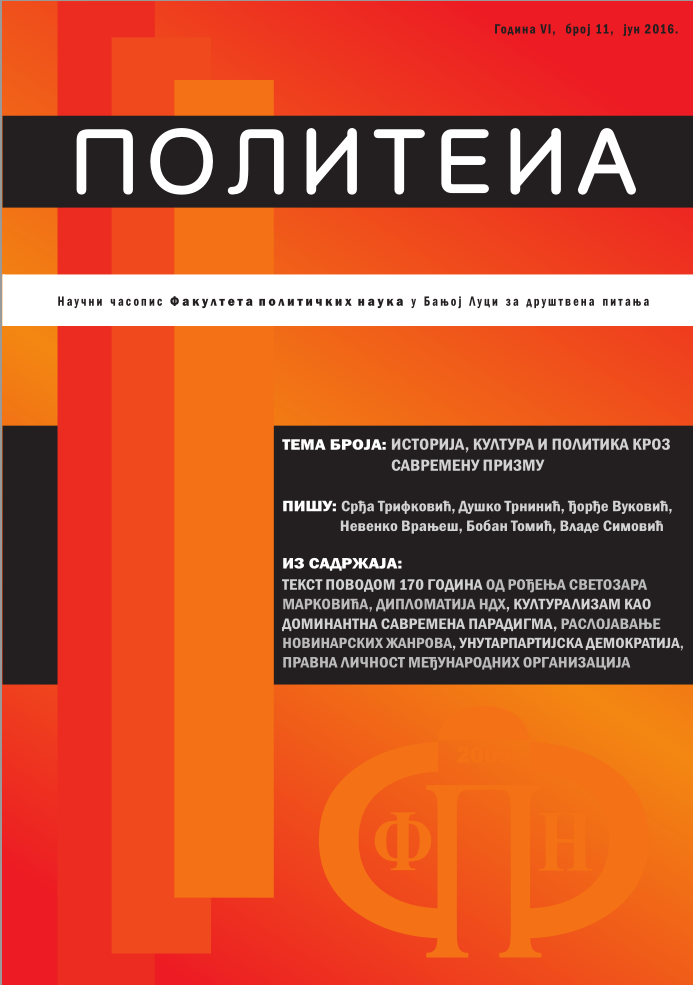Субјективитет, суверенитет, територијализација и суб-државни ентитети
Subjectivity, sovereignty, territorialization and sub-state entities
Author(s): Miloš ŠolajaSubject(s): International Law, Political Sciences, Governance, Government/Political systems, International relations/trade
Published by: Fakultet političkih nauka Univerziteta u Banjoj Luci
Keywords: sovereignty; state; territory; political entity; international law; society of states;
Summary/Abstract: The end of the Cold War and last decade of XX century revealed few phenomena in international relations. The most important re-examining are turned to state sovereignty dealing not only with state idea and state and its role as a subject of international relations but also taking account on other actors as territorially-political entities developed in different periods and shapes on a territory of internationally recognized sovereign states. New entities, dominantly based on ethno-national foundations set a question of self-determination and provoked internal conflicts, separatist tendencies and resistance of internationally recognized states including society of states. Non-recognized state-shaped appearances were represented the most frequently as 'de facto states'. They have some place in international law, some position in international political relations and limited role in international economy relations raising a question of international order. Processes of emerging and functioning of 'de facto states' after the Cold War characterized processes of independency and sovereignty in postsocialist countries. But there are more and more indicators of similar processes in West Europe. Fragmentation is process of dissolution of postsocialist Soviet and Yugoslav space states that enables existing of 'de facto States' as partly or limited recognized by international actors. Some of them disappeared in processes of geopolitical re-composition of international space which reflects as consequences on question of recognition, international rights and position of these un-recognized entities. Although not recognized they continue to exist on the basement and praxis of 'weberian state of legitimized monopoly of psychical power.' A question is what is future od 'de facto states' or 1strates within states' interms of survival in a frame of international order.
Journal: Politeia - Naučni časopis Fakulteta političkih nauka u Banjoj Luci za društvena pitanja
- Issue Year: 6/2016
- Issue No: 11
- Page Range: 75-94
- Page Count: 20
- Language: Serbian

